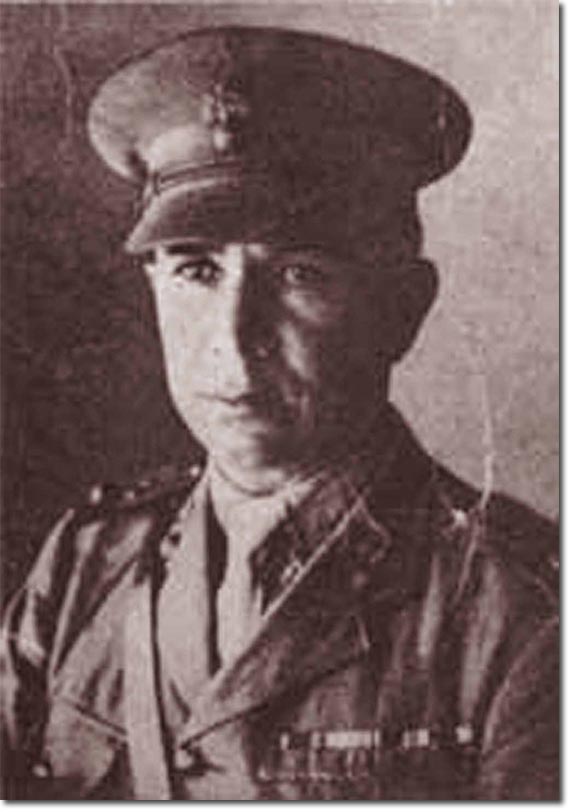|
|


|
|
Many Russian Jews took part at Gallipoli. Eliezer (Lazar) Markovich Margolin was a captain in the 16th infantry regiment of the Australian army. He was born in 1874 in Belgorod and in 1892 migrated together with his parents to Palestine, to an agricultural colony, Rekhovot, where he worked and took his turn guarding it. In Palestine he became an excellent rider and shot, but in 1900 after the death of his parents he moved to Australia. Margolin distinguished himself at Gallipoli, then fought at the Western front in Flanders and was promoted to lieutenant-colonel. After being wounded he was sent to London for recovery and here a leader of the Russian Zionist movement V. Jabotinsky, who had heard about him in St-Petersburg from his brother, found him. Jabotinsky offered him to command one of the units of "Jewish Legion" then being formed in Great Britain - the 39th Battalion Royal Fusiliers which consisted of Jewish volunteers from the USA, Canada, England (the latter were mostly migrants from Russia). Margolin accepted the offer and was transferred to the British army with a significant loss in salary. In the summer of 1918 this battalion participated in a breakthrough of the Turkish front on the Jordan River and capture of As-Salt in Transjordan, where Margolin became a commander of the British garrison. In December 1919 after amalgamation of all Jewish battalions into the "Jewish Legion" he was assigned to command it with the rank of colonel.
Margolin energetically but unsuccessfully resisted the intentions of British authorities to disband the Legion seeing in it a core of a future regular Jewish army. Having become a commander of a Jewish unit of mixed Arab-Jewish police detachments formed instead of the Legion, he allowed the Jewish self-defense groups to use weapons from British military stores during anti-Jewish riots in Jaffa and Jerusalem in spring 1921 and, by his own initiative, entered Jaffa with a group of soldiers in order to prevent a Jewish pogrom. Since a court martial threatened him for it he had to retire and return to Australia where he became a businessman and vice-president of Western Australian Zionist association. He died in 1944 in Sydney, in 1950 his ashes were moved to Israel and buried in Rekhovot. |
Regimental Details | Commanding Officers
Armed Forces | Art and Culture | Articles | Biographies | Colonies | Discussion | Glossary | Home | Library | Links | Map Room | Sources and Media | Science and Technology | Search | Student Zone | Timelines | TV & Film | Wargames